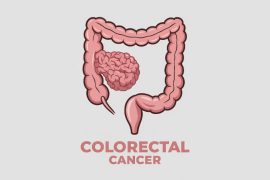Did you know that colon cancer is one of the most common types of cancer, but it’s also highly preventable? With regular screening, you can detect it early or even stop it before it starts. Yet, many people avoid screenings because they feel nervous or don’t fully understand how important they are. Let’s change that! In this blog, we’ll get into why colon cancer screening is so important when you should get tested, and how taking this step can protect your health and save lives.
What is Colon Cancer? [1]
Colon cancer develops in the large intestine or rectum, starting as small, non-cancerous growths called polyps. Over time, these polyps can turn cancerous if not removed. The disease often doesn’t show symptoms in its early stages, making regular screening crucial for early detection. By identifying and removing polyps early, you can stop cancer before it starts.
Risk Factors for Colon Cancer
Certain factors can increase the likelihood of developing colon cancer. While anyone can be at risk, understanding these factors can help you determine if you should consider earlier or more frequent screening:
- Age: Colon cancer is increasingly being diagnosed in people under 50, although it remains more common in older adults.[2]
- Family History: Having a close relative with colon cancer increases your risk.
- Lifestyle Choices: A diet high in processed foods and red meat, lack of exercise, smoking, and heavy alcohol use can contribute to colon cancer risk.
- Health Conditions: Conditions like inflammatory bowel disease (IBD), Crohn’s disease, or ulcerative colitis can raise your chances. [3]
- Obesity: Being overweight or obese is a significant risk factor.
By addressing lifestyle factors and staying vigilant, you can lower your risk.
When to Get Screened for Colon Cancer
Colon cancer screening is important even before any symptoms show up. Most people should start getting screened around the age of 45 or 50.[4] However, if you have a family history of colon cancer or certain health conditions, your doctor might recommend starting earlier. Regular visits to your healthcare provider can help you figure out the best time and how often you should get screened.
General Screening Guidelines
How often you need a colon cancer screening depends on the type of test and your personal risk factors.
- If you’re at average risk, screenings usually start between 45 and 50 years old, with follow-ups every 5–10 years. [5]
- If you’re at higher risk, like having a family history of colon cancer or certain health conditions, your doctor may suggest starting earlier and testing more often.
- For older adults, especially after 75, the need for regular screening may decrease, depending on your overall health and medical history. [6]
It’s always best to talk with your doctor to figure out a screening schedule that’s right for you.
Types of Colon Cancer Screening Tests
Screening methods for colon cancer come in different forms, and each serves a specific purpose:
- Stool-Based Tests : These non-invasive tests analyze your stool to detect hidden blood or abnormal DNA. While convenient, they may need to be repeated more frequently than other tests.
- Colonoscopy [7] :This procedure allows a doctor to examine the entire colon using a camera. It’s highly effective, as polyps can be removed during the same procedure.
- CT Colonography: Also called virtual colonoscopy, this imaging test offers a less invasive way to check for abnormalities in the colon.
- Sigmoidoscopy: Similar to a colonoscopy, this procedure focuses on the lower part of the colon and rectum. It’s a quicker option but covers less of the colon.
Discussing these options with your doctor will help you choose a test that best suits your needs.
How to Prepare for a Colon Cancer Screening
Preparing for a colon cancer screening might feel overwhelming, but it’s an important step to ensure accurate results. Here’s how you can get ready:
- Change Your Diet: You may need to stick to a clear-liquid diet the day before the screening.
- Clean Your Bowel: A prescribed solution will help empty your intestines for a clear view during the test.
- Check Your Medications: Let your doctor know about any medicines you take. Some may need to be paused before the screening.
By following these simple steps, you’ll help make the test effective and reduce the chances of needing to repeat it.
What Happens if Abnormal Results Are Found?
Receiving abnormal results doesn’t always mean you have cancer. If polyps are found during a colonoscopy, they’re often removed and sent for further testing. If other tests suggest abnormalities, additional procedures like a biopsy may be recommended. Early detection allows for timely intervention, reducing the risk of complications and improving the effectiveness of treatment.
Benefits of Detecting Colon Cancer Early
Recognizing colon cancer in its early stages comes with significant advantages. Early detection improves survival rates, as treatments are more effective when cancer is confined to a small area. Screening also helps prevent cancer by removing polyps before they turn malignant. Additionally, addressing issues early can reduce the need for more invasive and costly treatments down the line.
Overcoming Fears and Misconceptions About Colon Cancer Screening
Many people avoid screenings due to fear of discomfort or embarrassment. It’s important to understand that these procedures are designed to be safe and minimally invasive. Stool-based tests can often be done in the privacy of your home, while colonoscopies are conducted under sedation to ensure comfort. Knowing the life-saving potential of these tests can help you move past any hesitations.
Conclusion
Colon cancer screening isn’t just another health check; it’s a way to take control of your health and protect your future. By catching any issues early or preventing them entirely, these tests can truly make a difference in your life. Don’t wait for symptoms to show up; have a chat with your doctor, understand your risks, and take that first step toward a healthier and brighter tomorrow.





Comments are closed.